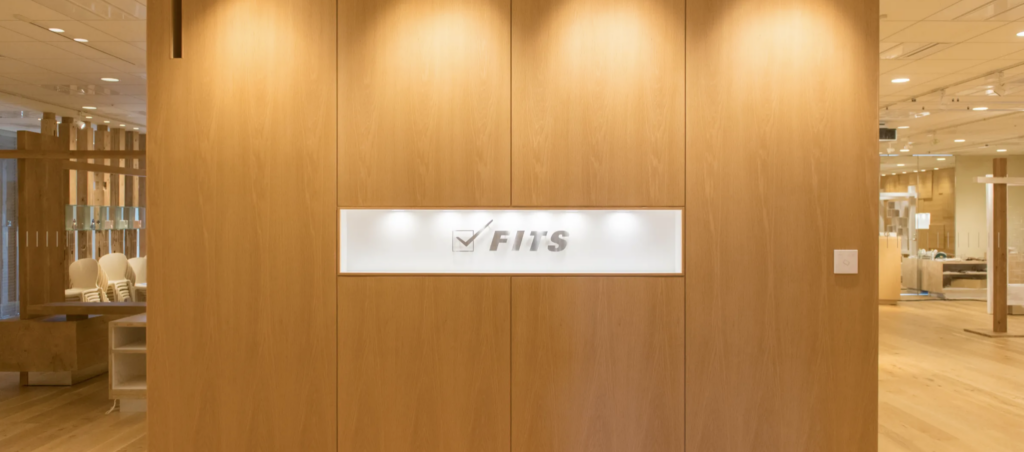Interview with Fits Corporation
Achieving standardization in SCM by transitioning from a manual approach to a system-based one. Implementing a world-class SCM system at a low cost, unique to SaaS.

Fits Corporation Case Study Interview
We spoke with Mr. Kazunori Suzuki from the SCM team and Ms. Akiko Kitazawa from the Administration team at Fits Corporation about the background, purpose, and changes after implementing the SaaS-based SCM service “PlanNEL.”
– Can you start by telling us about your company’s business?
Mr. Suzuki: Our company operates with the philosophy of “creating products that exude richness,” and we aim to deliver “new cultures” around the world, primarily through our cosmetics business. We function both as a manufacturer and distributor, importing overseas products for domestic sales and exporting our own products globally.
–What are the roles and structure of different departments in achieving SCM?
Mr. Suzuki: Our organization is unique in that it has a flat structure, with no departments or hierarchical positions. To achieve SCM, we have three main teams: the Logistics & Shipping Team, the Production & Manufacturing Team, and the MD & Accounting Team, which manages order and production requests based on sales plans and profit goals. I oversee both the Production & Manufacturing Team and the MD & Accounting Team.
Ms. Kitazawa: Although I’m not directly involved in SCM operations, as part of the Administration Team responsible for IT, I support digital transformation (DX) across teams, including SCM, from a company-wide perspective.
Mr. Suzuki: Our SCM team focuses on cross-team communication to enhance productivity and create more time for customer engagement. We’re actively promoting digital transformation to achieve this goal.

–Before implementing PlanNEL, what challenges were you facing?
Mr. Suzuki: Our MD & Accounting Team was managing sales, procurement, and inventory planning using Excel. However, with increasing sales and more team members, human errors and differences in Excel skills led to time-consuming processes. This prevented the team from focusing on customer engagement. We realized we needed a system to automate planning and management tasks to create more time for analysis and creativity, which are essential for driving business growth.
Ms. Kitazawa: In today’s world, where the labor force is shrinking, simply working longer hours isn’t the solution—productivity is key. We recognized that our Excel-based processes had their limitations, and our leadership team emphasized the need for rapid systemization to further expand sales and profits.
–Why did you choose PlanNEL over other SCM services?
Mr. Suzuki: We first learned about PlanNEL through an article in the Harvard Business Review that one of our team members shared. Previously, we had attempted to build an SCM system with an external vendor, but it didn’t work out. From that experience, we learned that it’s important not only to implement a system but also to reassess and improve business processes. We chose PlanNEL because it’s a SaaS model that follows global SCM standards, offers AI-driven demand forecasting, and allowed us to collaborate closely to create the right SCM framework.
Ms. Kitazawa: In our search, we found that other solutions didn’t meet our budget or requirements, and some had system performance issues, such as slow data processing. PlanNEL not only met our financial and functional needs, but we were also impressed with Zionex’s commitment to helping us realize our vision for SCM, which made them the right partner for us.

– How has the implementation of PlanNEL gone so far?
Mr. Suzuki: We’re still in the process of fine-tuning the system for full-scale operation, but a major shift has been structuring our processes to align with PlanNEL’s framework, rather than trying to fit the system into our existing processes.
Ms. Kitazawa: Zionex actively participated in our internal meetings during the implementation, supporting us as SCM professionals, which made the rollout smooth. Additionally, during the PlanNEL implementation, we identified gaps in our master data management that weren’t fully handled by our existing ERP system, which led us to improve our data management structure.
– Finally, do you have any advice for those considering an SCM solution?
Mr. Suzuki: Initially, we were concerned about working with Zionex, since they are headquartered in Korea. We weren’t sure if we’d get enough localized support in Japan, but that concern quickly disappeared since Zionex has an office in Tokyo with dedicated SCM consultants to support local clients in Japan. Their team provided passionate, professional support throughout the process. SCM can be managed in many ways, but I believe building operations and processes that align with the system leads to smoother operations. If you’re facing SCM challenges, I highly recommend consulting with them.

